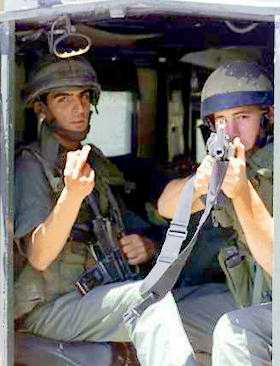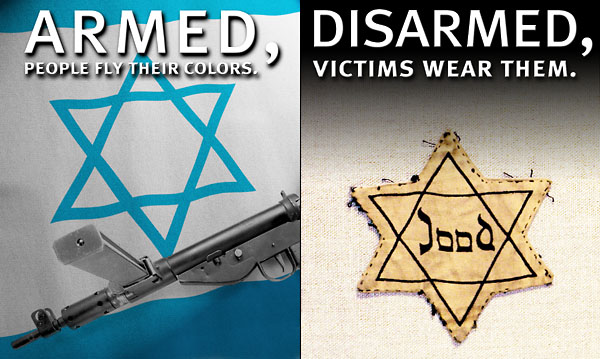 |
KristallnachtAlmost immediately upon assuming the Chancellorship of Germany, Hitler began promulgating legal actions against Germany's Jews. In 1933, he proclaimed a one-day boycott against Jewish shops, a law was passed against kosher butchering and Jewish children began experiencing restrictions in public schools. By 1935, the Nuremberg Laws deprived Jews of German citizenship. By 1936, Jews were prohibited from participation in parliamentary elections and signs reading "Jews Not Welcome" appeared in many German cities. (Incidentally, these signs were taken down in the late summer in preparation for the 1936 Olympic Games in Berlin). In the first half of 1938, numerous laws were passed restricting Jewish economic activity and occupational opportunities. In July, 1938, a law was passed (effective January 1, 1939) requiring all Jews to carry identification cards. On October 28, 17,000 Jews of Polish citizenship, many of whom had been living in Germany for decades, were arrested and relocated across the Polish border. The Polish government refused to admit them so they were interned in "relocation camps" on the Polish frontier.
Among the deportees was Zindel Grynszpan, who had been born in western Poland and had moved to Hanover, where he established a small store, in 1911. On the night of October 27, Zindel Grynszpan and his family were forced out of their home by German police. His store and the family's possessions were confiscated and they were forced to move over the Polish border. Zindel Grynszpan's seventeen-year-old son, Herschel, was living with an uncle in Paris. When he received news of his family's expulsion, he went to the German embassy in Paris on November 7, intending to assassinate the German Ambassador to France. Upon discovering that the Ambassador was not in the embassy, he settled for a lesser official, Third Secretary Ernst vom Rath. Rath, was critically wounded and died two days later, on November 9. The assassination provided Joseph Goebbels, Hitler's Chief of Propaganda, with the excuse he needed to launch a pogrom against German Jews. Grynszpan's attack was interpreted by Goebbels as a conspiratorial attack by "International Jewry" against the Reich and, symbolically, against the Fuehrer himself. This pogrom has come to be called Kristallnacht, "the Night of Broken Glass." On the nights of November 9 and 10, rampaging mobs throughout Germany and the newly acquired territories of Austria and Sudetenland freely attacked Jews in the street, in their homes and at their places of work and worship. At least 96 Jews were killed and hundreds more injured, more than 1,000 synagogues were burned (and possibly as many as 2,000), almost 7,500 Jewish businesses were destroyed, cemeteries and schools were vandalized, and 30,000 Jews were arrested and sent to concentration camps [added by Mitchell Bard from his book The Complete Idiot's Guide to World War II. NY: MacMillan, 1998, pp. 59-60].
The official German position on these events, which were clearly orchestrated by Goebbels, was that they were spontaneous outbursts. The Fuehrer, Goebbels reported to Party officials in Munich, "has decided that such demonstrations are not to be prepared or organized by the party, but so far as they originate spontaneously, they are not to be discouraged either." (Conot, Robert E. Justice At Nuremberg. NY: Harper & Row, 1983:165) Three days later, on November 12, Hermann Goering called a meeting of the top Nazi leadership to assess the damage done during the night and place responsibility for it. Present at the meeting were Goering, Goebbels, Reinhard Heydrich, Walter Funk and other ranking Nazi officials. The intent of this meeting was two-fold: to make the Jews responsible for Kristallnacht and to use the events of the preceding days as a rationale for promulgating a series of antisemitic laws which would, in effect, remove Jews from the German economy. An interpretive transcript of this meeting is provided by Robert Conot, Justice at Nuremberg, New York: Harper and Row, 1983:164-172):
It was decided at the meeting that, since Jews were to blame for these events, they be held legally and financially responsible for the damages incurred by the pogrom. Accordingly, a "fine of 1 billion marks was levied for the slaying of Vom Rath, and 6 million marks paid by insurance companies for broken windows was to be given to the state coffers. (Snyder, Louis L. Encyclopedia of the Third Reich. New York: Paragon House, 1989:201). Kristallnacht turns out to be a crucial turning point in German policy regarding the Jews and may be considered as the actual beginning of what is now called the Holocaust.
Following the meeting, a wide-ranging set of antisemitic laws were passed which had the clear intent, in Goering's words, of "Aryanizing" the German economy. Over the next two or three months, the following measures were put into effect (cf., Burleigh and Wippermann, The Racial State: Germany, 1933-1945. NY: Cambridge, 1991:92-96):
One final note on the November 12 meeting is of critical importance. In the meeting, Goering announced, "I have received a letter written on the Fuehrer's orders requesting that the Jewish question be now, once and for all, coordinated and solved one way or another." The path to the “Final Solution” has now been chosen. And, all the bureaucratic mechanisms for its implementation were now in place. It should be noted that there is some controversy among Holocaust scholars as to the origin, intent and appropriateness of the term Kristallnacht. The term, after all, was coined by Walter Funk at the November 12 Nazi meeting following the pogrom of November 8-10. The crucial question is whether the term was a Nazi euphemism for an all-out pogrom against German Jews and whether the Nazis used the term in a derisive manner. There is considerable evidence that both of the above questions have an affirmative answer. Holocaust, and Kristallnacht survivor, Ernest Heppner made the following observation in a recent (June, 1995) exchange of ideas on the Internet Holocaust Discussion List:
Walter Pehle makes the following observation:
So, it appears, the term "Kristallnacht" or "Crystal Night" was invented by Nazis to mock Jews on that black November night in 1938. It is, therefore, another example of Nazi perversion. There are numerous other examples of this same tendency in the language of the Nazi perpetrators: Sonderbehandlung ("special treatment") for gassing victims, Euthanasie for a policy of mass murder of retarded or physically handicapped patients, Arbeit Macht Frei (Work Makes you Free) over the entrance to Auschwitz. When the Nazis launched their plan to annihilate the remaining Jews in Poland in the fall of 1943, they called it "Erntefest," or Harvest Festival. While this may have been a code word, as Froma Zeitlin has observed, it had the same grim and terrible irony that is reflected in Kristallnacht as in so many other instances of the perverted uses of language in the Third Reich. Perhaps most cynical of all is the use of the term, "Endloesung der Judenfrage" (Final Solution of the Jewish Question), for what is now known as the Holocaust. Goebbels frequently used such terminology to amuse his audiences (usually other Nazi officials) and to further demoralize his victims. On the other side of this controversy are those who argue that the term should be retained. In the first place, it is the term which has been used now for fifty years and connotes significant meaning to those who study the Holocaust. As Froma Zeitlin (in a message posted to HOLOCAUS Internet Discussion Group in June, 1995) observes:
Paul Lawrence Rose, Penn State University, agrees with the retention of the term "Kristallnacht" instead of "pogrom" or some other term and makes the following observation:
And, as Zeitlin observes, the origins of terms do not equal the historical meanings that they accumulate. To have criticized Goering's use of language in 1938 would have been appropriate; however, 1996 the term kristallnacht carries the significance and power it has acquired over the past fifty years. Source: The Holocaust\Shoah Page. |
 |







 -by Oleg Volk
-by Oleg Volk
